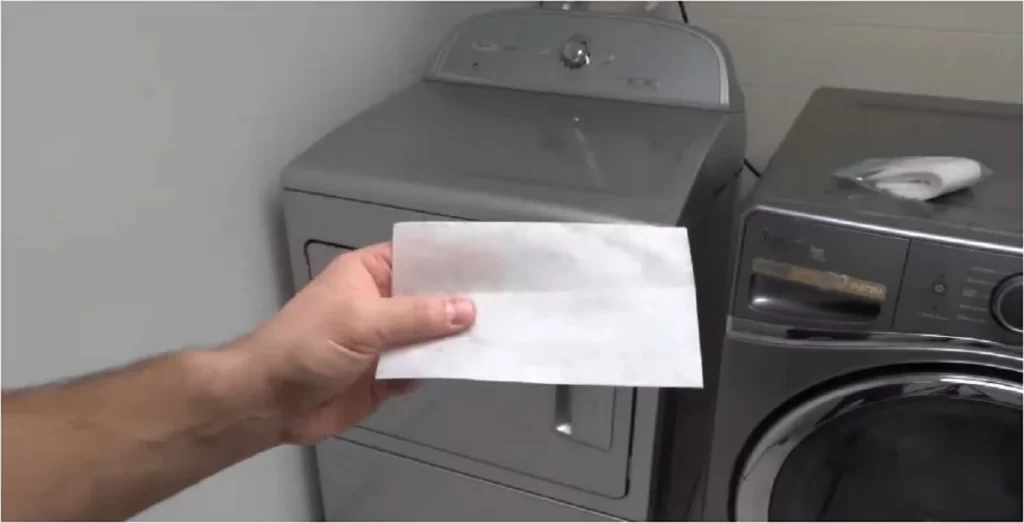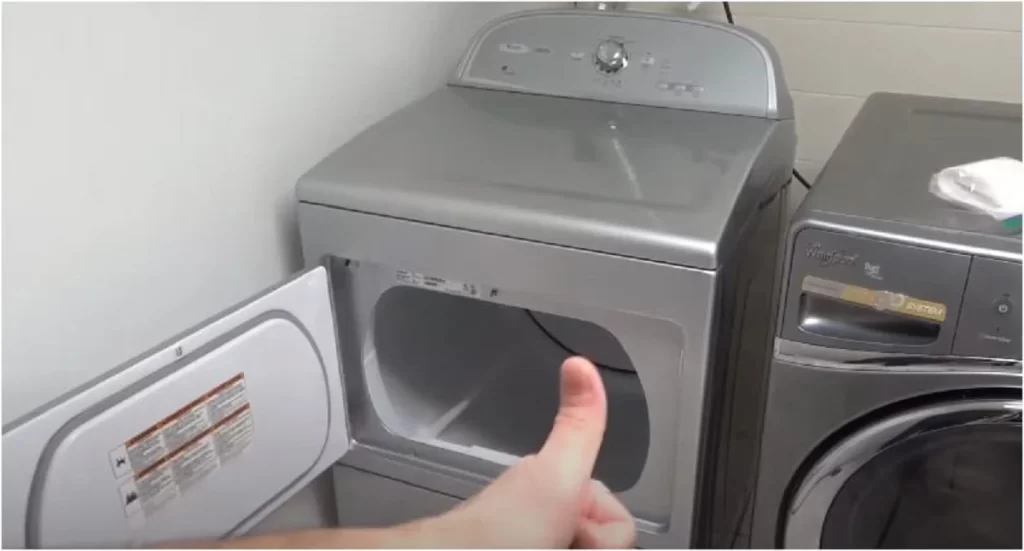| Note: This article may contain affiliate links, which means if you make a purchase following our links won’t cost you extra, but we may earn a commission. Learn more |
Dryer sheets are popular for adding a fresh scent and reducing static cling in clothes. Yet, it’s entirely possible and sometimes even preferable to dry clothes without them. Some people avoid dryer sheets due to potential allergens or chemicals present in them.
For those seeking natural alternatives, there are numerous methods available. For instance, using wool dryer balls can effectively decrease static cling and expedite the drying process. Another benefit of wool dryer balls is that they can be reused for several loads and can even help save energy.
Should you or should you, not dry clothes without a dryer sheet? That depends on your preference and needs. If you have concerns about the chemicals found in commercial dryer sheets, going without them might be the better choice. If static is a significant concern, ensure that you’re not overloading the washer or dryer, as this can contribute to increased static.
Moreover, it’s perfectly fine to dry clothes without a dryer altogether by air-drying. Not only is this method energy-efficient, but it also increases the longevity of your clothes. So, while dryer sheets can offer specific conveniences, they are not a necessity when drying clothes.
Why Dryer Sheets Necessary
Dryer sheets emerged in the market primarily to tackle two prominent laundry concerns: static cling and fragrance. During the drying process, clothes often rub against each other, leading to the build-up of static electricity.
Dryer sheets help counter this by releasing a fabric softener during the cycle, which coats the clothes and reduces static. Beyond this practical application, these sheets often come with pleasant fragrances, giving clothes a fresh smell straight out of the dryer.
Yet, while they provide certain conveniences, it’s crucial to know that the use of dryer sheets isn’t without controversy. Some suggest that the chemicals used in these sheets can be harmful to both the environment and the user.
Environmental concerns stem from the fact that these sheets are single-use and may not be biodegradable. Plus, potential allergens in the fragrance can be problematic for sensitive individuals.

What Happens If You Dry Clothes Without a Dryer Sheet?
Drying clothes without a dryer sheet can yield multiple outcomes. Firstly, you might notice that your clothes have more static cling. This is particularly true for synthetic fabrics like polyester. Clothes might also lack the additional fragrance that dryer sheets provide.
On the positive side, going without dryer sheets can be beneficial for those with allergies or sensitive skin, eliminating potential skin irritants. From an environmental standpoint, you reduce waste and the release of potentially harmful chemicals into the atmosphere.
Furthermore, it’s worth noting that some fabrics, such as towels, might feel more absorbent without the residue of fabric softeners that dryer sheets often leave behind.
Is It Ok to Dry My Clothes Without a Dryer Sheet?
Absolutely, it’s perfectly fine to dry clothes without using a dryer sheet. While these sheets have their perks, such as reducing static and imparting a pleasant smell, they aren’t indispensable.
Many alternatives can be employed to achieve similar results. Wool dryer balls, for instance, can help mitigate static while speeding up drying time. They also last for multiple cycles, making them more sustainable.
For those concerned about fragrance, natural alternatives like lavender sachets can be added to impart a subtle, pleasant aroma without chemicals. Plus, for a truly eco-friendly approach, air drying remains a great option.
Not only does it save energy, but it can also extend the lifespan of your garments, especially delicate items. In conclusion, while dryer sheets offer specific conveniences, they’re far from essential, and one can achieve excellent drying results without them.

Drying Clothes Without a Dryer Sheet
Many individuals have become accustomed to using dryer sheets for their laundry routine. These sheets, known for their fragrance and anti-static properties, can make clothes feel softer and smell fresher.
Despite their popularity, they’re not the only option available for drying clothes. In fact, numerous households often choose to bypass them altogether.
One of the primary reasons for skipping dryer sheets is the potential for skin irritations. Certain ingredients in these sheets can lead to allergic reactions in sensitive individuals.
Moreover, environmental concerns arise from the single-use nature of these sheets, contributing to more waste in landfills. Plus, there’s also the financial aspect; eliminating dryer sheets can save households money over time.
Alternative Ways To Dry Clothes Without A Dryer Sheet
Wool Dryer Balls
These have gained popularity recently. Made of natural wool, they reduce static, decrease drying time, and can be used multiple times. They also provide a natural softening effect without any chemicals.
Vinegar
A splash of white vinegar in the rinse cycle can act as a natural fabric softener. It also helps in removing detergent residue, ensuring clothes come out softer and devoid of static. There’s no need to worry about the smell; the vinegar odor dissipates as the clothes dry.
Air Drying
Not only is this method energy-efficient, but it also ensures longevity for your clothes, especially delicate ones. Using a drying rack indoors or a clothesline outside can prevent static and naturally soften your garments.
Baking Soda
Adding half a cup of baking soda to the wash cycle can soften clothes naturally. It also aids in cleaning and deodorizing garments.
Reusable Cloth Softeners
Similar to dryer sheets, these are cloths soaked in natural fabric softeners that can be reused for several loads. They provide the benefits of dryer sheets without waste.
Each of these alternatives offers a sustainable, effective way to dry clothes without the added chemicals or waste that traditional dryer sheets bring. Making the switch not only benefits the environment but also promotes healthier living.